Photo: Travis P Ball/Getty Images
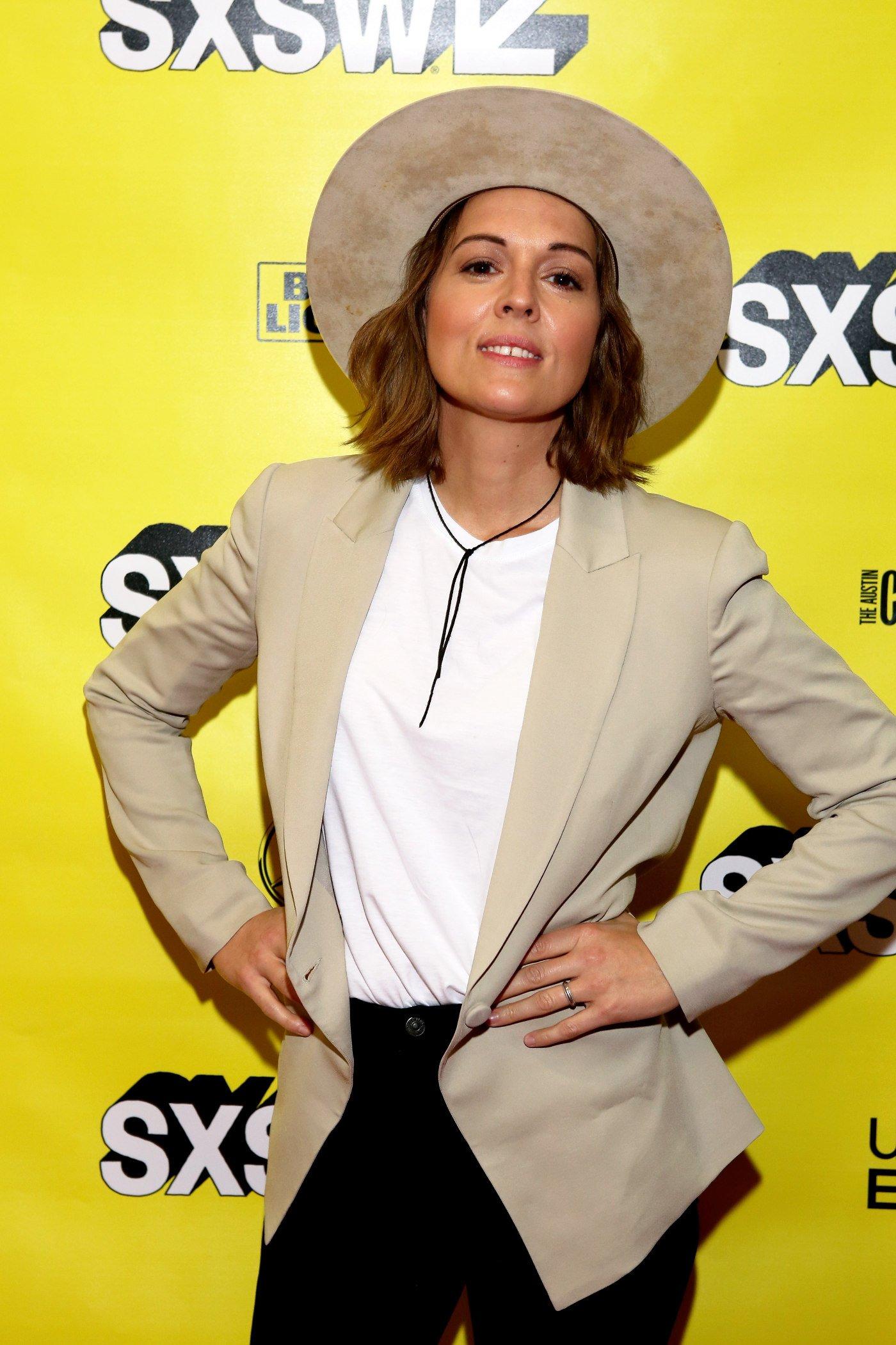
Brandi Carlile
news
2019 ACM Awards Add Brandi Carlile, Dan + Shay, More To Lineup
Other new performers added to the April 7 lineup include Eric Church, Kelly Clarkson, Ashley McBryde, and more
The ACM Awards announced a second batch of performers today, including 61st GRAMMY Awards winners Brandi Carlile and Dan + Shay.
Artists with nominations at the 61st include previous three-time GRAMMY winner Kelly Clarkson as well as Luke Combs, Florida Georgia Line and Ashley McBryde. They'll be joined by previous GRAMMY winners Brooks & Dunn and nominated artists Dierks Bentley and Eric Church.
<iframe width="620" height="349" src="https://www.youtube.com/embed/qHVAZ7xq2W8" frameborder="0" allow="accelerometer; autoplay; encrypted-media; gyroscope; picture-in-picture" allowfullscreen></iframe>
The above batch will join these previously announced 2019 ACM performers: three-time GRAMMY winner Reba McEntire as well as Brothers Osborne, Kane Brown, Miranda Lambert, Little Big Town, Maren Morris, Thomas Rhett, Chris Stapleton, and George Strait. Also performing is Jason Aldean, who will be presented with the ACM Dick Clark Artist of the Decade Award. Additional artist announcements are anticipated.
The 54th Academy of Country Music Awards will be broadcast from the MGM Grand at Las Vegas on April 7, 2019 on CBS. Tickets are still available at AXS.
In addition to the ACM Awards main event, many exciting Party For A Cause concerts are also planned for that weekend in Vegas, including the ACM Stories, Songs & Stars panel with its focus on country songwriters, the ACM Decades concert and the ACM Lifting Lives Topgolf Tee-Off, raising funds and awareness for ACM Lifting Lives' charitable activities.
Maren Morris & Brandi Carlile Talk Empowering Women In Music & Collaborating Together

Photo: Erika Goldring
list
5 Artists Who Graduated From GRAMMY Camp: Chappell Roan, Maren Morris, Blu DeTiger & More
As GRAMMY Camp 2024 winds down, check out this list of leading figures in the music community who count themselves as alumni.
GRAMMY Camp is almost a wrap — but the musical memories will last a lifetime. On Saturday, July 19, the weeklong summit for students interested in music careers will wrap after six enlightening days.
Held at the Village Recording Studios in Los Angeles, GRAMMY Camp's faculty of music professionals — along with guest professionals — have offered precious insight to give campers the best chance at succeeding in their career of choice.
The available Camp tracks include Audio Engineering, Electronic Music Production, Songwriting, Music & Media, Music Business, and much more. Many alumni of this enriching crash course have risen to prestigious positions across the musical landscape.
As the Recording Academy signs off on yet another elevating GRAMMY Camp, check out this list of five major artists who cut their teeth at the almost 20-year institution.
Maren Morris
The future country wunderkind attended GRAMMY Camp for its very first iteration, back in 2005. There, the then 15-year-old met undisputed leaders in the music community, like Jimmy Jam and Paul Williams — which set the course for her incredible career to come.
In the years since, Morris has won a GRAMMY, received 17 GRAMMY nominations, and topped the Billboard country charts. She also joined the country supergroup the Highwomen with fellow juggernauts Brandi Carlile, Natalie Hemby and Amanda Shires.
At this year's GRAMMY Camp, Morris returned as a guest artist. What's her advice to budding artists? "Just stick to being authentic," she told RecordingAcademy.com, "and people see that, no matter what time they arrive to the party for you."
Along the way, "Find people that listen to you," Morris added, "but also push you and your creativity to new areas of yourself."
Jahaan Sweet
In 2009 — four years after Morris' GRAMMY camp tutelage — the formidable Jacksonville, Florida, producer, songwriter and pianist Jahaan Sweet attended GRAMMY Camp.
At the outset, he was thrilled to come to L.A. for the first time and network with like-minded folks in music. "I knew that my skill set wasn't that great," he told GRAMMY.com a decade later, "but it was just so good to be around people who were all there to learn and create together.
"I feel like that's the biggest takeback I have of GRAMMY Camp," he continued. "It was amazing to have all those people together under one roof, all in the same vicinity, all doing creative things." Working with GRAMMY Camp Faculty Director Jason Goldman was one clear highlight for him: "He's a great guy, and he was such a good, carefree band director."
By now, Sweet has worked with Kehlani, Kendrick Lamar, Drake, Eminem, the Carters, Ty Dolla $ign, A Boogie Wit Da Hoodie, and many more; he's been nominated for three GRAMMYs and won one. And as a launchpad, GRAMMY Camp helped make all these accomplishments possible.
Watch now: Producer Jahaan Sweet Talks Making Records With Boi-1da, Drake & More | Behind The Board
Chappell Roan
In 2024, Chappell Roan is very, very famous — as she admits, a little more famous than she would like right now.
Regardless, the self-christened "Midwest Princess" — whose moniker was ensconced in the title of her 2024 breakout album — has wholly earned her plaudits, including opening for Olivia Rodrigo on her GUTS tour. And she can trace a line directly back to a decade ago, in 2014, when she attended GRAMMY Camp.
"I didn't do my senior year. I didn't go to prom. I didn't go to graduation," Roan explained to Rolling Stone in 2022, about her early musical life. "I missed a lot of what would have been the end of my childhood to do this job," she says.
For those like Roan, who are dead serious about making the music thing work, GRAMMY Camp is an ideal fount of experience and inspiration.
Read more: Chappell Roan's Big Year: The Midwest Princess Examines How She Became A Pop "Feminomenon"
Jensen McCrae
Another shout out to GRAMMY Camp's Class of 2014: that's the year that indie-folk-pop favorite Jensen McCrae put in her time, at the tender age of 16.
"I started playing and writing music as a little kid, and I've known I've wanted to be creative for my whole life," McCrae told VoyageLA, adding that she began taking songwriting and performing seriously in high school.
"[Being a] half-white, half-Black girl who spent her whole life in academically cutthroat private schools while trying to pursue a career in the arts gives me a unique perspective on the world," she explained. Which made McCrae an live antenna at GRAMMY Camp, picking up signals left and right.
The 10-day experience cemented the Angeleno's desire to attend college at the University of Southern California's Thornton School of Music — where she got a full ride, and was off to the races. These days, she's fresh off an opening slot for Noah Kahan on the We're All Be Here Forever Tour.
Blu DeTiger
"I remember thinking 'So many girls play guitar and sing,'" the TikTok-flourishing bass phenom Blu DeTiger told Spin in 2022. "I was like, 'I want to be different. I want to do something unique.' And I've never looked back."
Part of GRAMMY Camp's message is: dare to be different, to be you. Which made DeTiger an ideal student, when she enrolled in 2015; today, she's leading the charge for a generation of young, innovative bassists of all backgrounds.
Read more: Love Thundercat? Check Out These 5 Contemporary Bassists Keeping The Flame
Along with Morris and New Jerseyan singer/songwriter Jeremy Zucker, DeTiger returned in 2024 as a guest artist — bringing the musical education process full circle, as she continues to redefine how the bass is presented in the social media era of music.
The 20th annual GRAMMY Camp celebration is running now and concludes with the GRAMMY Camp Finale Student Showcase on Saturday, July 20, at the Ray Charles Terrace at the GRAMMY Museum.
Learn more about GRAMMY Camp here — and we'll see you next year in Los Angeles!
Explore GRAMMY Camp And The GRAMMY Museum

5 Artists Who Graduated From GRAMMY Camp: Chappell Roan, Maren Morris, Blu DeTiger & More

GRAMMY Museum Partners With HYBE For New K-Pop Exhibit 'HYBE: We Believe In Music' Opening Aug. 2

GRAMMY Hall of Fame Gala Red Carpet Highlights
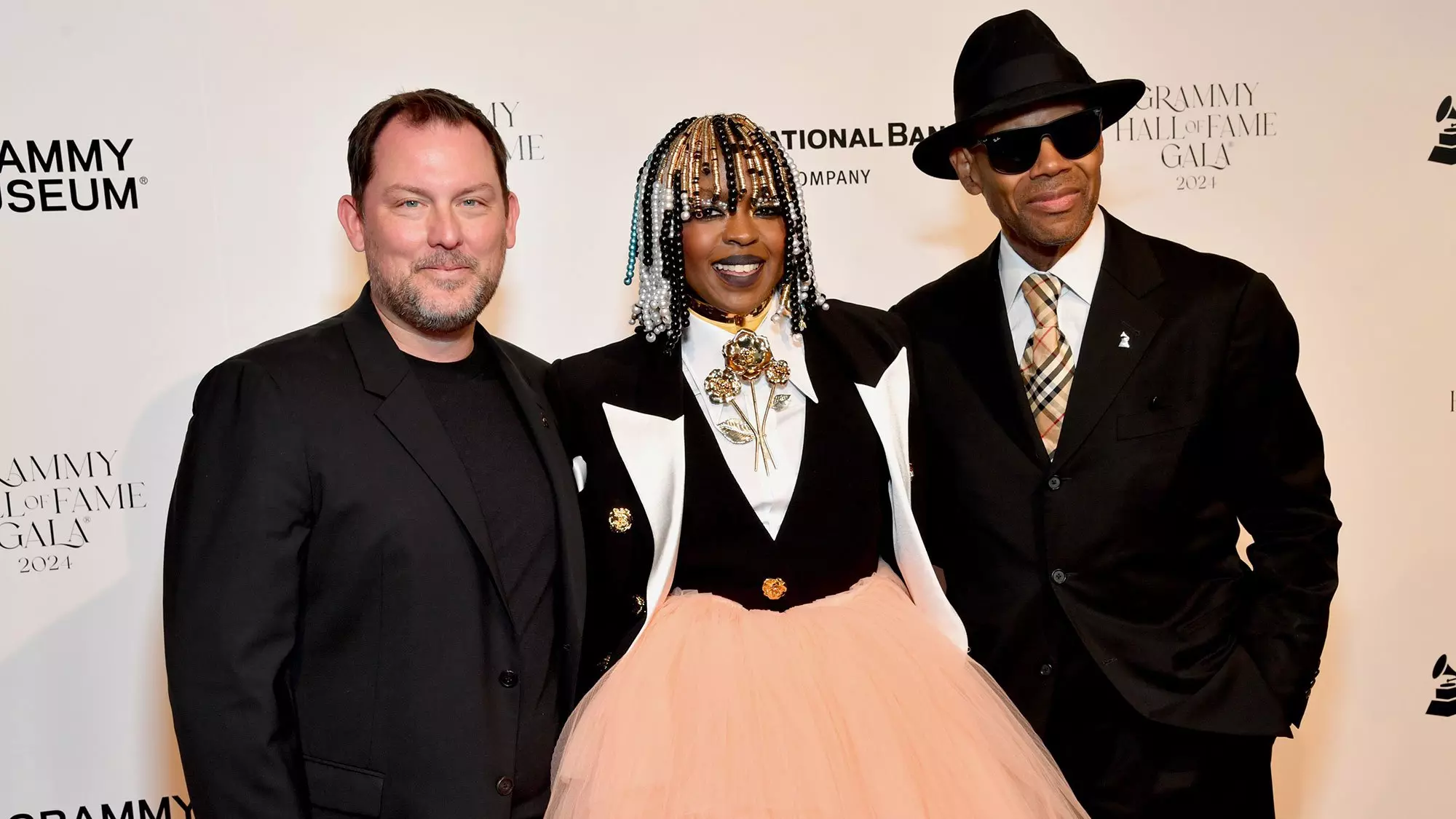
6 Key Highlights From The Inaugural GRAMMY Hall of Fame Gala Honoring Lauryn Hill, Donna Summer, Atlantic Records & Many More
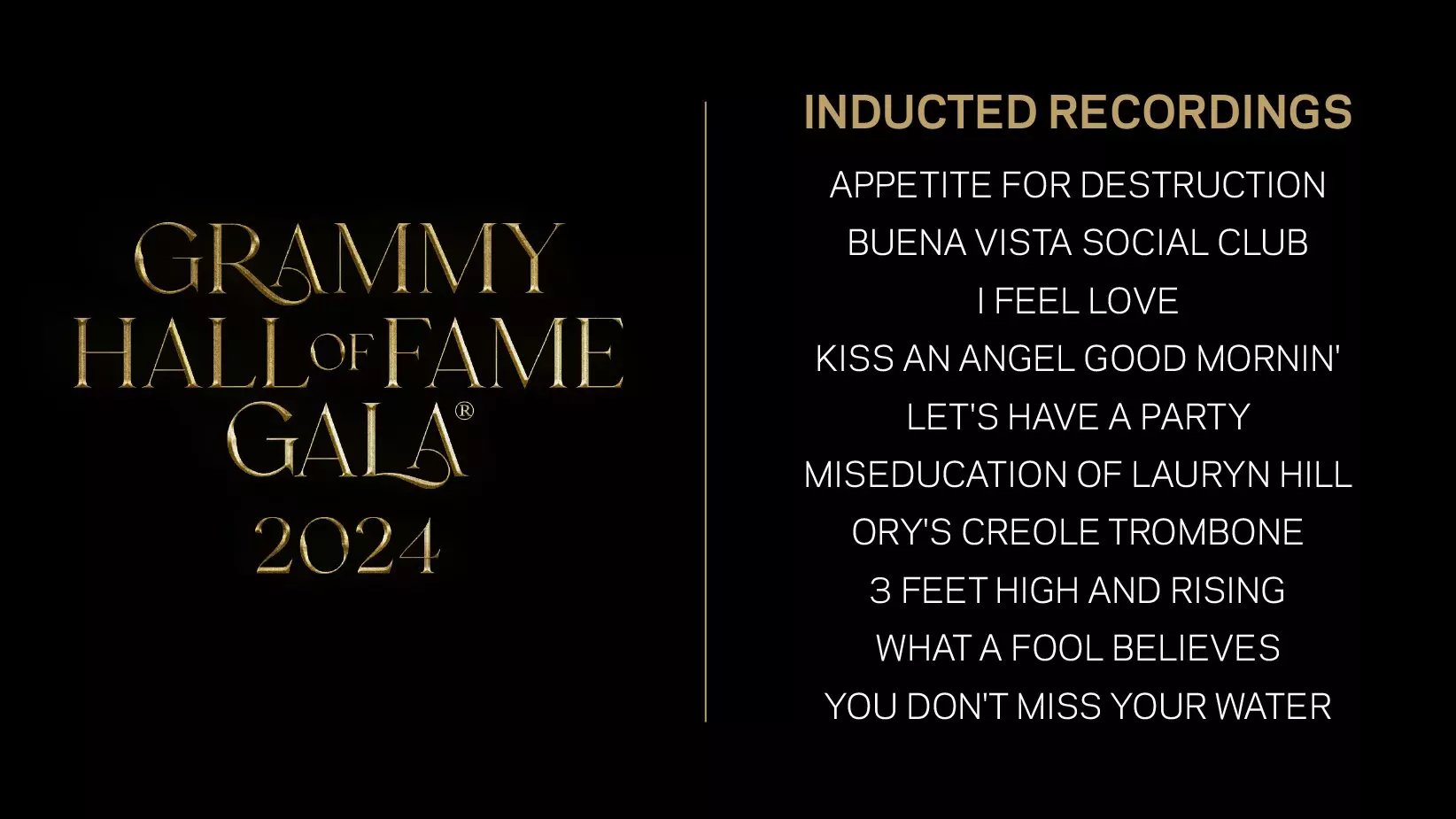
Explore The 2024 GRAMMY Hall Of Fame Inducted Recordings: Lauryn Hill, Guns N' Roses, De La Soul, Donna Summer & Many More
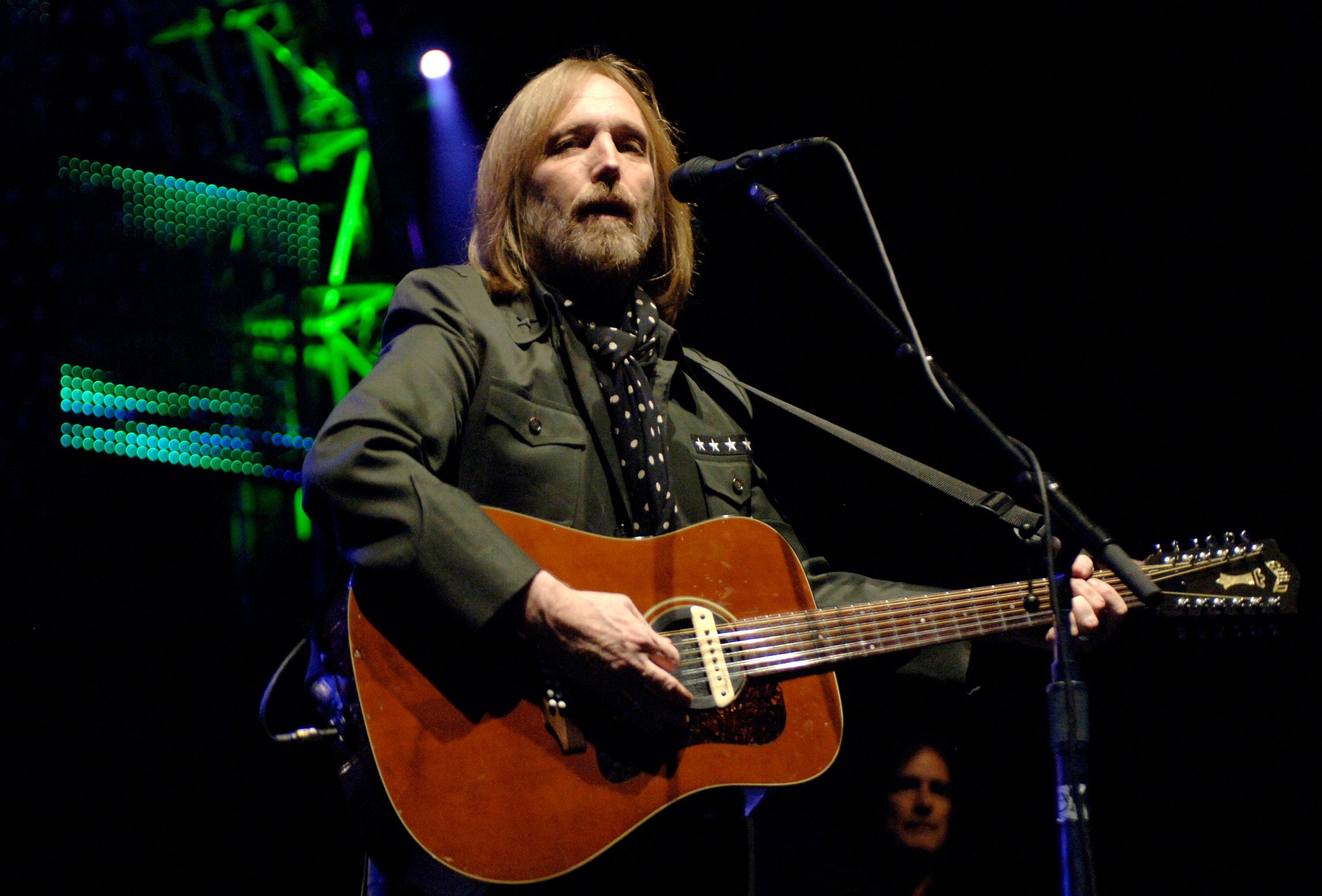
Photo: Tim Mosenfelder/Getty Images
feature
How 'Petty Country: A Country Music Celebration' Makes Tom Petty A Posthumous Crossover Sensation
On 'Petty Country,' Nashville luminaries from Willie Nelson to Dolly Parton and Luke Combs make Tom Petty’s simple, profound, and earthy songs their own — to tremendous results.
If Tom Petty and the Heartbreakers landed in 2024, how would we define them? For fans of the beloved heartland rockers and their very missed leader, it's a compelling question.
"It's not active rock. It's not mainstream rock. It's not country. It would really fall in that Americana vein," says Scott Borchetta, the founder of Big Machine Label Group. "When you think about what his lyrics were and are about, it's really about the American condition."
To Borchetta, these extended to everything in Petty's universe — his principled public statements, his man-of-the-people crusades against the music industry. "He was an American rebel with a cause," Borchetta says. And when you fuse that attitude with big melodies, bigger choruses, and a grounded, earthy perspective — well, there's a lot for country fans to love.
That's what Coran Capshaw of Red Light Management bet on when he posited the idea of Petty Country: A Country Music Celebration of Tom Petty, a tribute album released June 21. Featuring leading lights like Dolly Parton ("Southern Accents"), Willie and Lukas Nelson ("Angel Dream (No. 2)," Luke Combs ("Runnin' Down a Dream"), Dierks Bentley ("American Girl,") Wynonna and Lainey Wilson ("Refugee"), and other country luminaries covering Tom Petty classics, Petty Country is a seamless union of musical worlds.
Which makes perfect sense: on a core level, Petty, and his band of brothers, were absolutely steeped in country — after all, they grew up in the South — Gainesville, Florida.
"Tom loved all country music. He went pretty deep into the Carter Family, and "Will the Circle Be Unbroken?" and the folk, Americana heart of it," says Petty's daughter, Adria, who helps run his estate. "Hank Williams, and even Ernest Tubb and Patsy Cline… as a songwriter, I think a lot of that real original music influenced him enormously." (The Flying Burrito Brothers, and the Byrds' Gram Parsons-hijacked country phase, were also foundational.)
A key architect of Petty Country was the man's longtime producer, George Drakoulias. "He's worked with Dad for a hundred years since [1994's] Wildflowers, and he has super exquisite taste," Adria says.
In reaching out to prospective contributors, he and fellow music supervisor Randall Poster started at the top: none other than Willie Nelson and Dolly Parton. "Having Willie and Dolly made people stand up and pay attention," Dreakoulias told Rolling Stone, and the Nashville floodgates were opened: Thomas Rhett ("Wildflowers"), Brothers Osborne ("I Won't Back Down"), Lady A ("Stop Draggin' My Heart Around"), and so many others.
Each artist gave Petty's work a distinctive, personal spin. Luke Combs jets down the highway of "Runnin' Down the Dream" like he was born to ride. Along with Yo-Yo Ma and founding Heartbreakers keyboardist Benmont Tench, Rhiannon Giddens scoops out the electronics and plumbs the droning, haunting essence of "Don't Come Around Here No More."
And where a lesser tribute album would have lacquered over the songs with homogenous Nashville production, Petty Country is the opposite.
"I'm not a fan of having a singular producer on records like this. I want each one of them to be their own little crown jewel," Borchetta says. "That's going to give us a better opportunity for them to make the record in their own image."
This could mean a take that hews to the original, or casts an entirely new light on it. "Dierks called up and said, 'Hey, do you think we would be all right doing a little bit more of a bluegrass feel to it?' I was like, 'Absolutely. If you hear it, go get it.'"
"It had the diversity that the Petty women like on the records," Adria says, elaborating that they wanted women and people of color on the roster. "We like to see those tributes to Tom reflect his values; he was always very pro-woman, which is why he has such outspoken women [laughs] in his wake."
Two of Petty Country's unquestionable highlights are by women. Margo Price chose "Ways to Be Wicked," a cut so deep that even the hardcore Petty faithful might not know it; the Let Me Up (I've Had Enough) outtake was buried on disc six of the 1995 boxed set Playback.
"Man, it's just one of those songs that gets in your veins," Price says. "He really knew how to twist the knife — that chorus, 'There's so many ways to be wicked, but you don't know one little thing about love.'" Founding Heartbreakers guitarist Mike Campbell features on the dark, driving banger.
And all interviewed for this article are agog over Dolly Parton's commanding take on "Southern Accents" — the title track of the band's lumpy, complicated, vulnerable 1985 album of the same name. "It's just revelatory… it brings me to my knees," Adria says. "It's just a phenomenal version I know my dad would've absolutely loved."
"It's one of Dolly's best vocals ever, and it's hair-raising," Borchetta says. "You could tell she really felt that track, and what the song was about."
Adria is filled with profuse gratitude for the artists preserving and carrying her dad's legacy.
"I'm really touched that these musicians showed up for my dad," she says. "A lot of people don't want to show up for anything that's not making money for them, or in service to their career, and we really appreciate it… I owe great debt to all of these artists and their managers for making the time to think about our old man like that."
Indeed, in Nashville and beyond, we've all been thinking about her old man, especially since his untimely passing in 2017. We'll never forget him — and will strum and sing these simple, heartfelt, and profound songs for years to come.
Let Your Heart Be Your Guide: Adria Petty, Mike Campbell & More On The Enduring Significance Of Tom Petty's Wildflowers
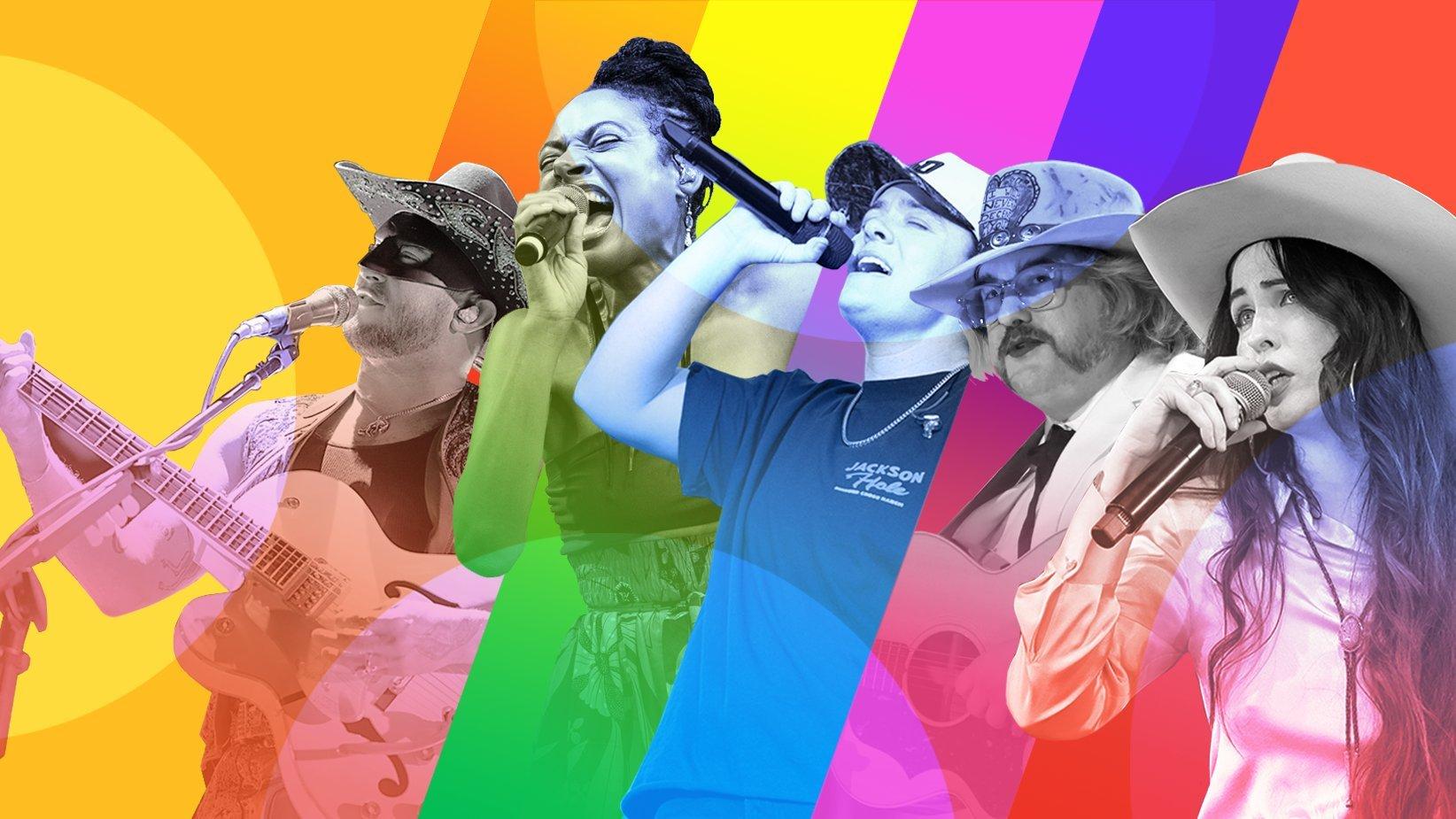
Photos (L-R): Jeff Hahne/Getty Images, Erika Goldring/Getty Images, Erika Goldring/Getty Images, Jason Kempin/Getty Images for Americana Music Association, Frazer Harrison/Getty Images for Stagecoach
feature
How Queer Country Artists Are Creating Space For Inclusive Stories In The Genre
As country music continues its global explosion, the genre is seeing a growing number of artists in the LGBTQIA+ community — including Adeem the Artist, Lily Rose and Jaime Wyatt — blaze a trail toward acceptance.
When country singer/songwriter Jaime Wyatt announced she was queer with the release of her second album, 2020's Neon Cross, she was convinced doing so would destroy her career. Instead, something shifted — not only was she more free to be herself and to date women openly, but many fans reacted positively, too.
"Several times on the road I've had fans come up to me with their same sex partner, and they're like, 'Hey, we feel safe here. It's so awesome because we both love country music, and we're not out of the closet, and we're not out to our families, but we can be here,'" Wyatt says.
Modern country music is generally perceived as a conservative genre, and deep-rooted cultural and industry biases have long excluded LGBTQIA+ (and BIPOC) artists and stories from the genre. For example, in 2010, when successful mainstream country artist Chely Wright came out, her career stalled and record sales halved. Kacey Musgraves was criticized for lyrics supporting same-sex love in her beloved anthem, "Follow Your Arrow." More recently, even, Wyatt walked out of a recording session after the owner of the space asked if she was singing "'some gay s—.'"
But Wyatt is also one of a growing number of country artists who, in recent years, have blazed a trail through country music and toward acceptance. Among them, Adeem the Artist, Mya Byrne, Brandi Carlile, Brandy Clark, Mary Gauthier, Lizzy No, Orville Peck, Lily Rose, and Allison Russell. Together, they're celebrating queerness alongside their love for the genre, and pushing it into diversity with patience, tenacity, and darn good country music.
"If you listen to popular music, or if you listen to hip-hop music, it feels like there's a broader diversity to a lot of subcultures as far as what you're able to access," nonbinary country singer/songwriter Adeem the Artist says. "Whereas with country music, it's very linear, it's very myopic, and singular in its expression."
By way of broadening country's storytelling, Adeem plays a honky-tonk blend of classic and '90s country music that's sonically aligned with the deep musical traditions in Tennessee, where they now live. Lyrically, though, their propensity for gorgeous, frankly worded songs complicate stereotypical southern narratives in rare and provocative ways. On White Trash Revelry, their 2022 studio album, they grapple with racism, economic entrapment, gun violence, and family heritage. And their latest, Anniversary, released in May, includes songs about mental health, the poignance of parenthood, and the pain and fear of being a queer person in a world that threatens their existence.
Indeed, some of the places in the U.S. with the strongest ties to country music remain the least hospitable to queer people. Just last year, Tennessee, home of Nashville, the country music capital of the world, passed a total of 10 bills aimed at LGBTQIA+ people, while Texas, perhaps country music's second-best known state, passed 20 percent of all anti-LGBTQIA+ legislation in the U.S. What's more, LGBTQIA+ people and culture have been targeted by numerous attacks around the world — including the Pulse nightclub and Club Q shootings stateside — in the last few years alone.
For many, the consequences of not coming out, of not sharing their full selves with the world, are risky, too. Growing up, Wyatt had no role model to show her it was okay to be queer. She struggled for years with mental health and substance abuse and was convicted of robbing her heroin dealer as a young adult. "I needed to see someone who looked like me when I was a young child," Wyatt says. "And maybe I wouldn't have been a dope fiend in jail."
But while straight white men comprise most of country music's standard slate of forebearers, women and people in the BIPOC and LGBTQIA+ communities have contributed to the genre since its beginning. Notably, it was Sister Rosetta Tharpe, a queer Black woman, who in the 1950s introduced reverb to gospel and rhythm and blues music — and in doing so, she forever changed guitar playing, and inspired some of country music's biggest trailblazers, from Elvis to Johnny Cash.
In 1973 — four years after the Stonewall uprising kickstarted a widespread gay liberation movement — Patrick Haggerty and his band Lavender Country released what is generally considered the first gay country album. But after it sold out its first pressing of 1000 copies, the album was mostly forgotten until 1999, when the Journal of Country Music published an article hailing Haggerty as "the lost pioneer of out gay country music." Haggerty began performing again and in 2014, indie label Paradise of Bachelors reissued the Lavender Country album, securing Haggerty status as a grandfather figure to queer country.
Haggerty's reissue landed in a different world than the album's original run. In the interim, a handful of artists released more queer country music, including Jeff Miller, aka "John Deere Diva," known for his George Strait parody, "Not Really Strait," as well as Doug Stevens and the Outband's When Love Is Right and Sid Spencer's Out-N-About Again, which put lyrically gay songs to country music.
In 2011, shortly before the Lavender Country reissue, queer country singer/songwriter and music scholar Karen Pittleman convened the first Gay Ole Opry in Brooklyn's now defunct Public Assembly performance space, launching more than a decade of queer country events, tours and a far-reaching network of performers and supporters. And in 2015, gay marriage became legal nationwide.
As progress has accelerated culturally in the near decade since, it has in country music, too. In 2018, Paisley Fields' debut album Glitter and Sawdust merged cowboy grit with queer raunch. In 2019, Lil Nas X's "Old Town Road" provoked country music to re-consider the nature and identity of country music. In 2021, T.J. Osborne of the Brothers Osborne became the first openly gay male artist signed to a major record label; a year later, the duo's song "Younger Me" — which was written in response to T.J.'s coming out — became the first country song with an LGBTQIA+ theme to win a GRAMMY. And this Pride Month, longtime LGBTQIA+ supporter (and GLAAD's 2023 Excellence in Media Award recipient) Maren Morris declared on Instagram, "happy to be the B in LGBTQ+."
"We as queer fans deserve to have songs that speaks specifically to us," says Rachel Cholst, a queer writer and educator. "And if that means putting in same gender pronouns, then we deserve that too. And if that makes a straight person uncomfortable, I don't know what to tell you. I've grown up my entire life having to internally change the pronouns to the love songs that really moved me."
Cholst started writing about music when she realized she couldn't be the only queer country fan out there. Her work aims to make queer country music accessible, and she has run the Adobe and Teardrops blog for more than a decade. In 2022, Cholst launched Rainbow Rodeo, a zine about queer country music, which appears bi-annually in print and regularly online.
"Everyone just assumed that country music is this one thing, and it never occurred to them to go look for it. That tells you a lot about how country music wants to present itself as an industry," Cholst says. "If we erase anyone who's not straight, anyone who's not white, then what you're saying is, you want those people to be erased from the conversation, from the culture."
Beyond using she/her pronouns in love songs (which she didn't get to do on her first album, Felony Blues), Wyatt's powerful, steely queer country music complicates social consciousness. Incisive and elegant in her delivery, she's equally compelling chronicling her conviction and jail time on Felony Blues, confronting demons and figuring out who she is on her Shooter Jennings-produced second album, Neon Cross, and outlining her hopes and frustrations for the world on her third album, 2023's sultry, groovy, Feel Good.
Wyatt's knack for catchy and advocacy-laced country bangers is clearest in "Rattlesnake Girl," one of her most popular songs. In it, she offers an anthemic celebration of joy unfettered: "I see my sweet friends out on the weekend/ They all look happy and gay," and a barbed warning to anyone who might impinge on that happiness: "Thank you kindly, don't walk behind me/ I've seen people slip that way/ And if you try me, boot heels beside me/ I might have to make your day."
Queer country music means something a little different to each artist. For many, it's about much more than simply being a queer person performing country music. Adeem the Artist considers queer country its own genre, complete with specific rules — many of which have nothing to do with sexual or gender orientation.
"It is explicitly political in nature. It is often kind of raunchy," they assert. "There's an element to queer country that is confrontational, that is willing to create discomfort for the sake of a relief that leans towards some greater social awareness."
To some degree, raising awareness and representation — which is essential for inclusion and acceptance — requires a bit of self-tokenization, Adeem says. "The very, very basic act of referring to me as a person who is queer, who is trans, who is nonbinary, who is whatever, those labels only do good as much as they illuminate the differences between us and the fact that I am more difficult for some people to relate with."
Adeem and Wyatt both operate within the alt-country scene, which has been marginally more inclusive than mainstream country over the years. Recently, though, rising country musician Lily Rose cracked through with her viral breakup single, 2020's "Villain." On her latest EP, Runnin' Outta Time (which she released in May), she sings a high-octane pop/country mix about her values and relationships. It's a well-worn country music landscape that has been almost exclusively dominated by heterosexual white men.
"To be one of the first to literally [and] figuratively, carry the flag... it makes me really proud. And it has its heavy moments for sure," Rose says. "Night after night, when I get to meet fans and see comments on social media that they feel seen for the first time in the genre, it's really special and it makes every single second of hard work to get here worth it."
The day after Runnin' Out of Time dropped, Rose made her Grand Ole Opry debut with two songs from the album, "Back Pew" and "Two Flowers"; Adeem and Wyatt also played the Opry for the first time in the last year as well. The Opry, one of country music's oldest and most lauded tastemakers, has welcomed a number of queer artists in the last few years, signaling a subtle shift toward a more inclusive country music institution. (In addition, all three artists recently scored high-profile touring spots: Rose with Shania Twain and Sam Hunt, Adeem with Tyler Childers and Jason Isbell and the 400 Unit; and Wyatt wrapped up her first headlining tour.)
For Pittleman, an essential part of making music is ensuring space for anyone who wants to make music to do so, regardless of how they look or identify. "Most people who like country music, they just want to hear country music," Pittleman says. "I want to have a good time, too. But you have to ask at a certain point, 'Who is invited to the good time?'"
As she insists, there's a long way to go. In a digital world, radio play doesn't offer a complete picture, but it remains a dominant force in country music. For decades, women have been played sparingly on country radio and artists of color and queer musicians featured far less, a shortcoming which SongData's principal investigator, Jada Watson, spent years studying. Her research concludes that women country artists are played roughly 29 percent of the time, Black artists 5 percent, and other artists of color 7 percent. Queer artists, Watson estimates, make up less than 1 percent of radio play.
"The real problem is who's making those decisions; who has the power and as a result, who has the power and the resources to record their music, to distribute their music, to get it out on a broader scale," Pittleman suggests. "We have to make sure that everyone who's called to make the music has the resources and the power to make it and bring it into the world."
And in spite of multitude setbacks and naysayers, queer artists are creating country music. As Pittleman wrote in a 2020 essay in the Journal of Popular Music Studies titled "You're My Country Music," one of the joys of singing queer country music is making country music, plain and simple. "The point is to mark the deepest moments of human connection, our truest hopes and heartbreaks, and turn them into a sound that gives us joy and strength," she says.
"Because sometimes you love a culture that doesn't love you back," Pittleman continues on the Gay Ole Opry's about page. "We do it because we love the music and want to build a community to support queer country musicians. We do it because everybody needs a honky-tonk angel to hold them tight. We do it because we believe in country music for all."
Why 2024 Is The Year Women In Country Music Will Finally Have Their Moment
PRIDE & Black Music Month: Celebrating LGBTQIA+ & Black Voices
Listen To GRAMMY.com's 2024 Pride Month Playlist Of Rising LGBTQIA+ Artists
9 New Pride Anthems For 2024: Sabrina Carpenter's "Espresso," Chappell Roan's "Casual" & More
What's The Future For Black Artists In Country Music? Breland, Reyna Roberts & More Sound Off
Why Beyoncé Is One Of The Most Influential Women In Music History | Run The World
9 Ways To Support Black Musicians & Creators Year-Round
How Beyoncé Is Honoring Black Music History With 'Cowboy Carter,' "Texas Hold Em," 'Renaissance' & More
The Evolution Of The Queer Anthem: From Judy Garland To Lady Gaga & Lil Nas X
15 LGBTQIA+ Artists Performing At 2024 Summer Festivals
50 Artists Who Changed Rap: Jay-Z, The Notorious B.I.G., Dr. Dre, Nicki Minaj, Kendrick Lamar, Eminem & More
Fight The Power: 11 Powerful Protest Songs Advocating For Racial Justice

How Rihanna Uses Her Superstardom To Champion Diversity | Black Sounds Beautiful

How Beyoncé Has Empowered The Black Community Across Her Music And Art | Black Sounds Beautiful
5 Women Essential To Rap: Cardi B, Lil' Kim, MC Lyte, Sylvia Robinson & Tierra Whack
Celebrate 40 Years Of Def Jam With 15 Albums That Show Its Influence & Legacy

Watch Frank Ocean Win Best Urban Contemporary Album At The 2013 GRAMMYs | GRAMMY Rewind
A Brief History Of Black Country Music: 11 Important Tracks From DeFord Bailey, Kane Brown & More
10 Women In African Hip-Hop You Should Know: SGaWD, Nadai Nakai, Sho Madjozi & More
10 Artists Shaping Contemporary Reggae: Samory I, Lila Iké, Iotosh & Others
The Rise Of The Queer Pop Star In The 2010s
How Sam Smith's 'In The Lonely Hour' Became An LGBTQIA+ Trailblazer
How Queer Country Artists Are Creating Space For Inclusive Stories In The Genre

How Jay-Z Became The Blueprint For Hip-Hop Success | Black Sounds Beautiful

How Kendrick Lamar Became A Rap Icon | Black Sounds Beautiful
Dyana Williams On Why Black Music Month Is Not Just A Celebration, But A Call For Respect
6 LGBTQIA+ Latinx Artists You Need To Know: María Becerra, Blue Rojo & More
7 LGBTQ+ Connections In The Beatles' Story
Breaking Down Normani's Journey To 'Dopamine': How Her Debut Album Showcases Resilience & Star Power
10 Alté Artists To Know: Odunsi (The Engine), TeeZee, Lady Donli & More

Celebrating Black Fashion At The GRAMMYs Throughout The Decades | Black Music Month
FLETCHER Is "F—ing Unhinged" & Proud Of It On 'In Search Of The Antidote'
For Laura Jane Grace, Record Cycles Can Be A 'Hole In My Head' — And She's OK With That
15 Essential Afrorock Songs: From The Funkees To Mdou Moctar
50 Years In, "The Wiz" Remains An Inspiration: How A New Recording Repaves The Yellow Brick Road
Why Macklemore & Ryan Lewis' "Same Love" Was One Of The 2010s' Most Important LGBTQ+ Anthems — And How It's Still Impactful 10 Years On
Songbook: The Complete Guide To The Albums, Visuals & Performances That Made Beyoncé A Cultural Force

Why Cardi B Is A Beacon Of Black Excellence | Black Sounds Beautiful
Queer Christian Artists Keep The Faith: How LGBTQ+ Musicians Are Redefining Praise Music
9 Revolutionary Rap Albums To Know: From Kendrick Lamar, Black Star, EarthGang & More
9 "RuPaul's Drag Race" Queens With Musical Second Acts: From Shea Couleé To Trixie Mattel & Willam
5 Black Artists Rewriting Country Music: Mickey Guyton, Kane Brown, Jimmie Allen, Brittney Spencer & Willie Jones
How 1994 Changed The Game For Hip-Hop

How Whitney Houston’s Groundbreaking Legacy Has Endured | Black Sounds Beautiful
LGBTQIA+-Owned Venues To Support Now

Celebrate The Genius Of Prince | Black Sounds Beautiful

Explore The Colorful, Inclusive World Of Sylvester's 'Step II' | For The Record
Black-Owned Music Venues To Support Now
5 Artists Fighting For Social Justice Today: Megan Thee Stallion, Noname, H.E.R., Jay-Z & Alicia Keys
Artists Who Define Afrofuturism In Music: Sun Ra, Flying Lotus, Janelle Monae, Shabaka Hutchings & More
5 Trans & Nonbinary Artists Reshaping Electronic Music: RUI HO, Kìzis, Octo Octa, Tygapaw & Ariel Zetina
From 'Shaft' To 'Waiting To Exhale': 5 Essential Black Film Soundtracks & Their Impact
5 Emerging Artists Pushing Electronic Music Forward: Moore Kismet, TSHA, Doechii & Others
5 Artists Essential to Contemporary Soca: Machel Montano, Patrice Roberts, Voice, Skinny Fabulous, Kes The Band

How Quincy Jones' Record-Setting, Multi-Faceted Career Shaped Black Music On A Global Scale | Black Sounds Beautiful
5 Black Composers Who Transformed Classical Music
Brooke Eden On Advancing LGBTQ+ Visibility In Country Music & Why She's "Got No Choice" But To Be Herself
Let Me Play The Answers: 8 Jazz Artists Honoring Black Geniuses
Women And Gender-Expansive Jazz Musicians Face Constant Indignities. This Mentorship Organization Is Tackling The Problem From All Angles.

Histories: From The Yard To The GRAMMYs, How HBCUs Have Impacted Music
How HBCU Marching Band Aristocrat Of Bands Made History At The 2023 GRAMMYs
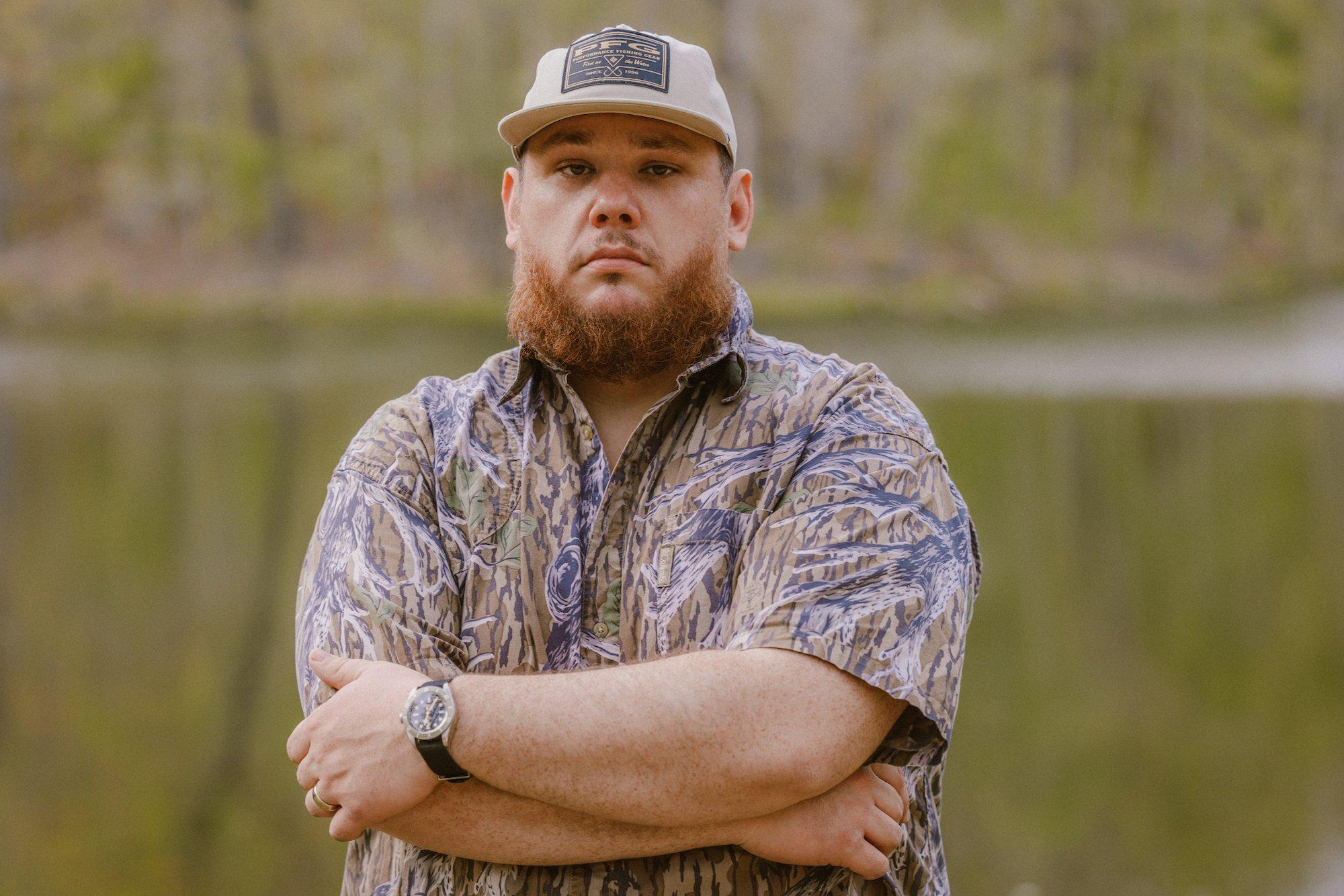
Photo: Zack Massey
list
Tracing Luke Combs' Journey To 'Fathers & Sons' In 10 Songs, From "Be Careful What You Wish For" To "The Man He Sees In Me"
Country phenom Luke Combs' new album, 'Fathers & Sons,' is a touching tribute to his two boys, and a reflection of his journey as a new father. Here are 10 songs that trace his process of growin' up, gettin' old, and now, watching his sons grow up.
As a country artist of remarkable detail and relatability, Luke Combs has the songwriting muscle to deliver a gut-wrenching punch — and his latest set might be the biggest heart-tugger yet.
On June 14, the country star will release his fifth album, Fathers & Sons, which sees Combs stake his claim on songs about family, devotion and belonging. While those are all themes he's explored throughout his five-album discography, he's never honed them quite like this.
Combs is now a proud papa of two; he and his wife, Nicole, welcomed their first son in 2022 and their second in 2023. Fathers & Sons is a 12-song reflection on his experiences as a dad thus far, as well as the unique bond between parents and children.
The new album's highlights, like the mortality-addressing "In Case I Ain't Around"; the dewy, contemplative "Whoever You Turn Out to Be"; and the meditation on memory "Remember Him That Way," are sure to resonate throughout Combs' sizable fan base and beyond.
It's a natural progression for Combs, who has charted the prizes and pitfalls of growing up since his 2017 debut, This One's for You, whether in hits like his Eric Church collaboration "Does To Me" or deep cuts like "Memories Are Made Of." (He even named Father & Sons' 2022 and 2023 predecessors Growin' Up and Gettin' Old.)
His preternatural knack for a heartfelt story song extends to songs he didn't write, too, as his cover of Tracy Chapman's "Fast Car" became his biggest hit to date in 2023 and scored him two GRAMMY nominations at the 2024 GRAMMYs.
The familial sentiments of Fathers & Sons have often appeared in Combs' music as well, making his album full of "dad songs" all the more fitting — and continuing his beloved reputation as one of country music's most relatable superstars.
If you're unfamiliar with Combs' back catalog — or just want a refresher — use these 10 songs to trace his evolution from longing for the carefree days of teenhood to fully embracing fatherhood.
"Be Careful What You Wish For" ('This One's for You,' 2017)
Basically Combs' spin on the Beach Boys' "That's Not Me," "Be Careful What You Wish For" reflects on his adolescence — when he had a fire in his belly to hurtle out of his circumstances into the unknown. The result plants seeds for the realizations he passes to his kin on Fathers & Sons.
In the song, an 18-year-old and newly emancipated Combs says sayonara to his "one-horse" town, before realizing the grass ain't always greener. "Sometimes things ain't what you think they're gonna be," Combs sagely warns in the pre-chorus. "What you want ain't always what you need."
"Memories Are Made Of" ('This One's for You,' 2017)
When you look back on your youth, what stuck in your craw most — generic milestones, or fleeting, stolen moments? Chances are, it's the latter, as Combs memorably argues in another This One's for You cut, another dispatch from his youth that resonates with Fathers & Sons.
Therein, he and his ne'er-do-well friends, fresh out of high school, crack open cold ones under a bright blue sky. "Just a couple buds and a good buzz, that's all it was," he sings in the chorus. "But that's what memories are made of." On Fathers & Sons, he seems to recognize his boys will remember the small moments, too — and those are often the ones worth cherishing most.
"Even Though I'm Leaving" ('What You See is What You Get,' 2019)
Many tracks on Combs' second album, What You See is What You Get, showed his maturation as a man and a songwriter, but one served as his introduction to paternal matters: "Even Though I'm Leaving."
The tear-jerker charts the evolution of a father-son relationship, from Dad evacuating a monster under the bed, to seeing his son off to the military, to eventually saying goodbye before his passing.
As the father assures the son in all of those stages, he'll always be there for his boy, even when he isn't physically there. It marked a poignant foreshadowing to Father & Sons' masterful interrogations of mortality and eternal family bonds.
"Dear Today" ('What You See Is What You Get,' 2019)
As What You See is What You Get winds down, the spectre of time still weighs heavily on Combs. "Dear Today" is just that — a letter to Combs' present self, from his future self. (There's a tint of that on "My Old Man Was Right," the penultimate track on Fathers & Sons.)
"You're the only one with a choice in the matter," tomorrow Luke gently, yet firmly, prods. Call your mom, have a drink with your dad, "put that diamond on her hand." What an effective framing device, to capture the crossroads we all face on the cusp of our thirties — another prelude to Combs' advice to his sons on Fathers & Sons.
"Does to Me (feat. Eric Church)" ('What You See Is What You Get,' 2019)
A few years before welcoming his first son, Combs hinted to Rolling Stone that he was ready to settle down. "I'm almost 30 years old now, and I'm not going to be out at the bar every night," he said in 2019. "I just want to grow up a little bit." "Does to Me" is a terrific inventory of what resources, exactly, he possesses in order to carry out that mission.
He's unflinching about the ways he's an ordinary, average guy. After all, the opening line is "I was a third-string dreamer on a second-place team."
But as "Does to Me" lays down, "achievements" have nothing on qualities that really matter, like being a good brother, or romantic partner. Fertile soil for a real man to grow from — and eventually pass on to his own boys.
"Doin' This" ('Growin' Up,' 2022)
In "Doin' This," Combs cements his life mission — regardless of whether it brings him fame and fortune.
He'd still be Luke Combs even if he wasn't Luke Combs, he explains. Whether at the Grand Ole Opry or some watering hole, picking up a guitar and laying waste to a besotted crowd is why he was put on this planet. "I'd still be doin' this if I weren't doin' this": simple, evocative, masterful.
While "Doin' This" isn't necessarily centered around a theme of family, it makes all the sense in the world that his devotion to his boys is in parallel to his devotion of the craft — proof of which is all over Fathers & Sons.
"Used to Wish I Was" ('Growin' Up,' 2022)
You can only be yourself — that's the central message of this equally great Growin' Up cut, where Combs reflects on all the people he could be, and once ached to be.
He could have finished college — or pursued football, hunting or fishing with more chutzpah — but that's not him. This "North Carolina good ol' boy" is what he is — and he's not losing sleep over that pesky fact anymore. By knowing himself, Combs establishes himself as a man of integrity, which is exactly who his sons need as a role model.
"Where the Wild Things Are" ('Gettin' Old,' 2023)
Across his discography, Combs expertly builds out his family dynamics, and that continues on "Where the Wild Things Are." The song concerns a hell-raising brother, who pointed his Indian Scout motorcycle toward Southern California to indulge in earthly pleasures.
After detailing a wild night of brotherly bonding in the Hollywood Hills, the song ends in tragedy, when the "wild as the devil" brother crashes his motorcycle and perishes. "We buried him out in the wind 'neath the West Coast stars," Combs sings, "out where the wild things are."
If any father's lesson is to be taken away from this song: there's a time and a place to enjoy life in all its wildness, without risking calamity. It continues the life lessons Combs touches on again in "Growin' Up and Gettin' Old," and later on Fathers & Sons.
"Growin' Up and Gettin' Old" ('Gettin' Old,' 2023)
Oh, to be in your early thirties — you can't stay out as late, the hangovers hit harder. Overall, your perspective shifts dramatically, and you realize nothing lasts forever.
"I'm still bending rules, but thinkin' 'fore I break 'em/ And I ain't lost a step, I just look before I take 'em," Combs sings on "Growin' Up and Gettin' Old."
As usual, this ever-nimble songwriter nails this pivotal time of life — and takes a hard look in the mirror, taking inventory before undergoing his journey on Fathers & Sons.
"The Man He Sees In Me" ('Fathers & Sons,' 2024)
With Combs still being a very recent father, his sons are at the age where he can do no wrong upon Fathers & Sons' release. Even so, he fears the day that illusion erodes, and lead single "The Man He Sees In Me" details his anxiety over this eventuality.
The song's not fatalistic, though; it's aspirational: "Maybe I'll finally be the man he sees in me" flips into "I hope he's trying to be the man he sees in me."
As Combs wrote in a letter to his boys upon the release of "The Man He Sees In Me," "With this song I want you to know that even though I'm not perfect, I try my hardest every day to be the best version of myself for you both."
He stresses that sentiment throughout Fathers & Sons — an album with a lot of introspective and self-realizing precedent in Combs' increasingly touching discography.
2024 GRAMMYs: Luke Combs & Tracy Chapman Team Up For A Surprise Duet Version Of "Fast Car"
